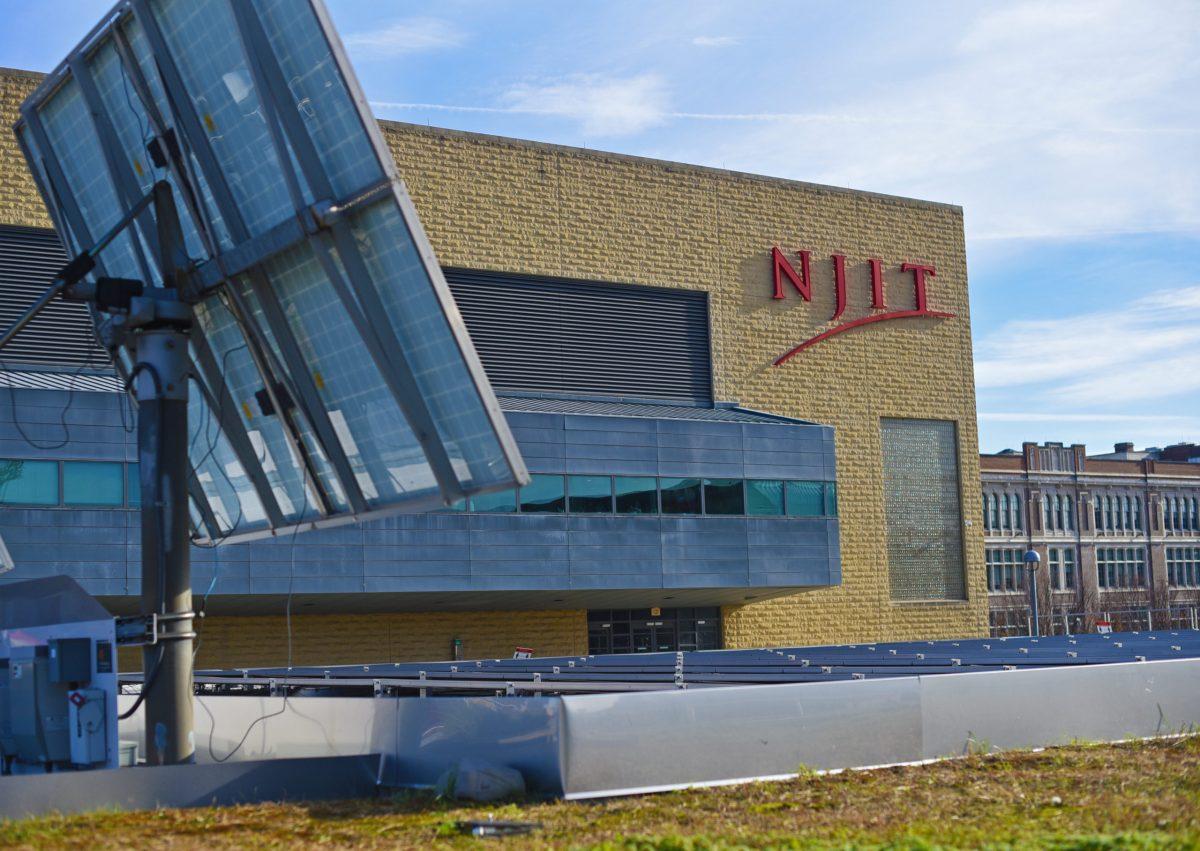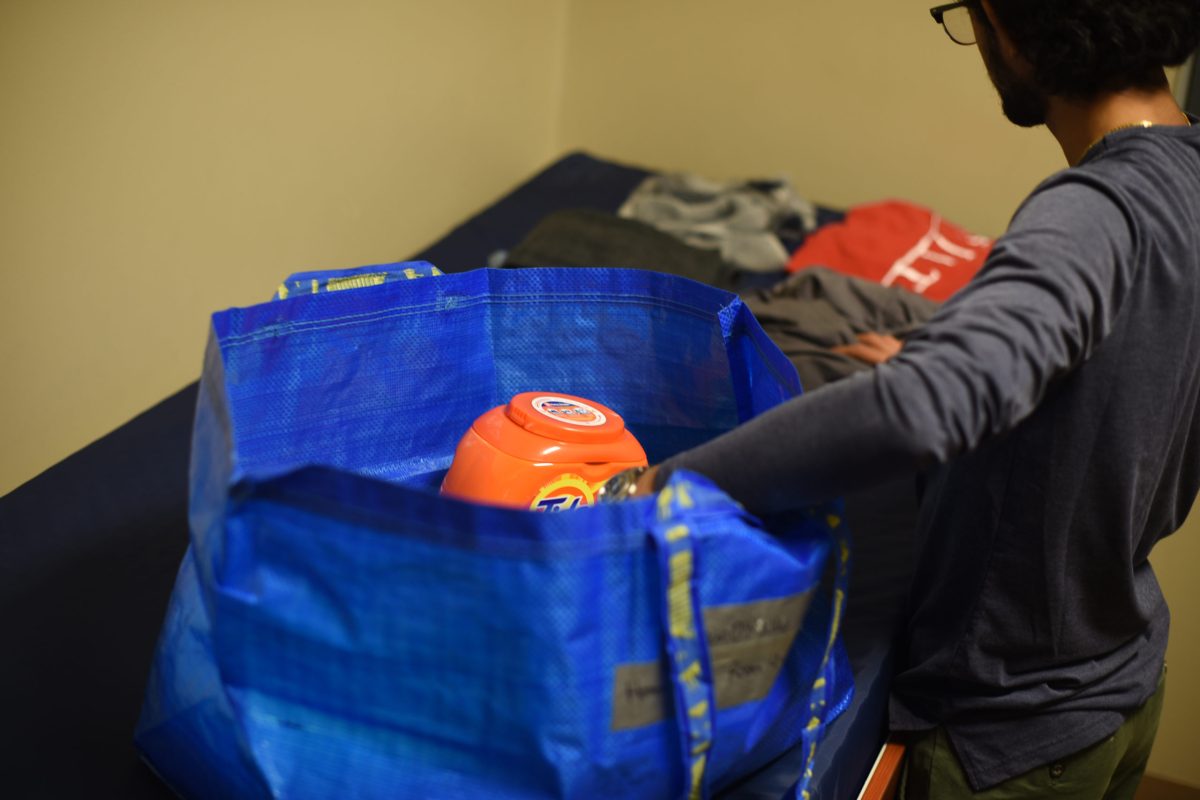With enough time spent at NJIT, you are bound to find problems with it. There is always something the school is not doing right, whether it is broken chairs in Tiernan, food at GDS dining hall, or problems with professors and advisors; the list is endless. Just like the President or a member of Congress of the United States, here at NJIT we have a student equivalent known as the NJIT Student Senate, a group of students who volunteer their time and effort to tackle these issues and cause change.
Every week the Student Senate tables in the Campus Center to get feedback from students on a wide range of issues such as policy initiatives, problems with faculty, event ideas, guest speakers, musical performers, and other means to improve the campus. Based on the turnout of student feedback surveys, however, less than 10% of undergraduate students are engaged in providing feedback to their elected representatives.
While covering the Student Senate this semester, only one student showed up to any of the meetings since the semester started. When major representatives hosted their own feedback sessions for each major throughout the year, most had single digit turnouts with the largest major, engineering, having only a dozen students out of possible hundreds. Not a single freshman showed up to the freshman commuter rep meeting.
NJIT has a Student Senate consisting of about fifty members, one student for each major and seven members on the executive board. Unbeknownst to much of the student population, the Senate has influence in shaping not just school policy such as the smoke free campus initiative or cutting back five minutes of class time so there is a total of ten minutes for students to get to class, but also has a hand in appropriating funds to improve the quality of campus life for students, having just approved about a quarter million dollars on furniture, plants, and other renovations out of the $712,815.00 budget of the Student Affairs Financial Review Board (SAFRB). While students voice their frustrations about general maintenance, academics, and certain professors, very few go to their representatives to voice these concerns when they DO in fact have the influence to make changes.
Michael Tadros was the Public Relations Manager of the Senate, a senior in the Law, Technology and Culture major, and the strongest member of the Senate advocating for student inclusivity. He graduated last semester was very emphatic in his words with why he decided to join the Senate.
“I joined SS because I care about my NJIT community and I hoped to make an impact on a place I have called home for the past 3 years. I pray that other students will follow in my footsteps and work to improve their NJIT home.”
When speaking with him about this lack of engagement he listed several reasons: the number of commuter students, STEM culture, and a lack of civics education.
First and foremost, according to Tadros, 70% of the undergraduate student body are commuters. Since commuters already use up time in getting to school and back, plus having either work commitments or home commitments, they simply don’t have the time to be engaged.
This reason resonated strongly with Tarun Masimukku, a junior Biomedical Engineer major who is the Secretary of Global Brigades and just recently went from being a resident to a commuter. “The majority of the school being commuters is the number one reason[for lack of engagement], there’s no contesting that. Residents have more opportunity to get involved. What makes it tough for commuters is that they have a life outside of school, they go to work or go home to their families.” Tarun has little interaction with Senate as Secretary of Global Brigades because, aside from covering Global Brigade Chapter fees, he doesn’t feel that they have much bearing on campus.
Another Engineering Major who is a commuter, senior Collin Tierney, said that it’s important for NJIT to consider how to get in better touch with commuters. “All the communication is done through e-mail and you get blasted with so many it’s hard to tell what’s spam and what is useful.”
Both Tarun and Collin were unaware of who their major representative was as well as the recent work done by the Senate in policy endorsement and campus improvements.
With respect to the culture of STEM students, Tadros said that “NJIT students are not socially active BECAUSE of their major.”
In the three years that he has been on the Senate, he’s observed very little student engagement. He asserted that socially gauche students have a tendency to pursue STEM majors. Being gauche, it’s easier to find comfort and consensus in the objectivity of mathematics and science than it is to manifest the skills needed for effective communication or work with a large team of people to create policy and events.
This is not to say that social awkwardness is a definitive or inherent trait in all STEM students, albeit in a small number. It is important to note that there are students who DO provide their feedback on surveys and show up to major representative feedback sessions. There are also dozens of social clubs and several fraternities/sororities that provide networking opportunities and a chance for students to bond socially.
This idea that the lack of civic engagement is due to the subjective nature of politics was concurred upon with Representative Aditya Patwardhan, a junior in medical informatics technology. ” In science and technology, you have facts. If you get the facts wrong, you get everything wrong. Civics is based on personal decisions, people skills, what choices we make in life and how they affect us.”
Tadros shared an example of this lack of engagement with the 2nd floor Campus Center proposal. This proposal provided new furniture and other renovations. This involved the Student Affairs Committee and was several months in the making. At the time when the Senate was looking for student body feedback as to what should be put in, nobody voiced their opinion.
Quite often it isn’t until decisions have been made and actions implemented that students finally decide they should speak up and at that moment it is usually too late. This will probably happen again with on-campus smokers when, two months into the Fall of 2018, they get slammed with a $250 fine upon second offense for smoking too close to a building entrance and $500 for a third. If you don’t make your voice heard by communicating with your representative to learn about policies or appropriations while they’re being crafted, then it’s too late for you to be heard after the fact.
As Tadros said, “You won’t stay in your house if it’s messy… you would probably clean it. Take your problems with NJIT and clean them up as well- the Senate is here for that. “

































